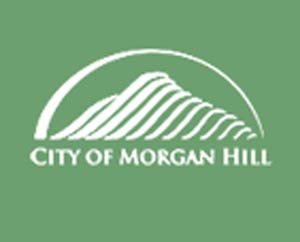After hearing a parade of threats of political backlash from concerned community members and vague warnings about the potential danger of charter schools, the City Council – baffled by the utter complexity of the process – on Wednesday denied Rocketship Education’s request to pursue up to $50 million in bonds to finance a new charter school in Morgan Hill.
But even if the City had approved the request, and even though Council members repeatedly told the packed audience their action does not indicate support or opposition to the charter school effort, the Council doesn’t have the final say-so on the issuance of the bonds. That authority belongs to the California Municipal Finance Authority.
The Council’s vote was one step in the process for Rocketship to secure the bonds. The organization can still proceed by side-stepping the City and holding another public hearing in front of another elected body, or going back to the Council at a future date.
The public hearing at Wednesday’s Council meeting was only a preliminary step for Rocketship, a San Jose-based nonprofit charter school organization, to acquire bonds they plan to use to build new charter schools not only in Morgan Hill, but also San Jose.
The Council voted 4-1 to deny the request for bonds, with Vice Mayor Gordon Siebert casting the dissenting vote.
Rocketship Director of Development Jessica Garcia-Kohl noted Thursday that one of the Council’s chief concerns is that Rocketship is seeking funding for a project that has not yet secured a charter – a concern that can be remedied.
“We’re still looking at the options,” Garcia-Kohl said. “If the City is asking us to get a charter and come back, that’s what we’ll do. This doesn’t deter us from moving forward to establish a Rocketship school in Morgan Hill. We’re convinced there’s a need for this, and we have something to offer.”
Those in support of Rocketship Wednesday noted that the school already has a petition signed by 350 Morgan Hill residents who want a new charter school in town.
Councilman Larry Carr said it’s the “wrong order” for Rocketship to seek financing before gaining a charter.
“The charter is not up to us, but that needs to come first,” Carr said. “Should they get their approvals, I’d be happy to have them come back and talk to us again.”
Councilmembers and those in the audience had difficulty understanding the purpose of the hearing and the meaning of the Council’s vote on the matter.
“When you approve the issuance (of the bonds), you are saying you held the public hearing as required by (the) Internal Revenue code,” City Attorney Renee Gurza explained at the start of the public hearing. “The language (in a draft resolution presented for the Council’s consideration) sounds forceful – that you’re approving the bonds – which is not what is taking place.”
The purpose of the hearing was merely “to provide the community with notice,” Gurza later said.
However, a CMFA staff person at the meeting said that in approving the draft resolution, “you are authorizing us to issue tax-exempt bonds, should the project move forward.”
That only confused Council members, and when asked by Councilwoman Marilyn Librers what impact Wednesday’s hearing might have on the CMFA’s ultimate decision on whether or not to issue the bonds, the CMFA staff person said, “The IRS wrote the code that way.”
With the Council’s rejection of the bond resolution, Rocketship Education can’t go the CMFA yet for bonds but can seek a similar public hearing at a selection of other venues in Santa Clara or Sacramento County, or at the Morgan Hill City Council again, the CMFA staff person said.
Rocketship Education chose to have Wednesday’s public hearing in Morgan Hill because it was “the most transparent place” to solicit public input and discussion, according to Rocketship’s attorney.
Rocketship has not yet secured an approved petition for a school in Morgan Hill, let alone building permits and other entitlements that are required for such a project.
The conceptual charter school project in Morgan Hill for which Rocketship is seeking bond financing would be on property near the intersection of San Pedro Avenue and Church Street, according to a City staff report.
Ever since Rocketship, which has eight charter schools in San Jose, announced its intention to build a charter school in Morgan Hill, teachers and supporters of the Morgan Hill Unified School District have publicly resisted the effort.
Wednesday’s public hearing almost immediately devolved into a philosophical discussion of the effectiveness of charter schools versus traditional public schools – with no criticism directed specifically at Rocketship’s record or practices.
Supporters of MHUSD who spoke at the hearing – mostly teachers and administrators – warned Council that another charter school in Morgan Hill could siphon money out of MHUSD, and even force the closure of at least one MHUSD elementary school.
The city already has two charter schools. The Charter School of Morgan Hill opened in 2001 and serves grades K though 8 at 9530 Monterey Road. Silicon Valley Flex Academy opened in 2011 and serves grades six through 12 at 610 Jarvis Drive.
Rocketship isn’t the only charter management organization with its sights set on Morgan Hill. Navigator Schools, which opened its first facility in 2011 in Gilroy and its second this year in Hollister, is also going through the petition process and hoping to set up a new facility that will serve 180 kindergartners through second-graders in its first year.
Sobrato High School teacher Theresa Sage compared the rise of charter schools to the pre-civil rights era, when black Americans were lawfully excluded from every meaningful aspect of mainstream social, political and economic activity.
Sage said she was “sad” to be speaking about the subject Wednesday, on the 50th anniversary of the historic March on Washington in support of civil rights.
“Part of what happens with charter schools is it ends up re-segregating kids,” Sage said. She added the existing Morgan Hill Charter School in San Jose has only two students below the poverty line, whereas 80 percent of students at P.A. Walsh Elementary School on West Main Avenue are in poverty.
Sage did not explain how this disparity is directly a result of the school having its own charter, but Rocketship Director of Development Jessica Garcia-Kohl later in the hearing offered that the remote geographical location of the Morgan Hill Charter School – which is unaffiliated with Rocketship – is likely the reason the student body there comes mostly from families with more financial means.
Admittance to charter schools is lottery based.
MHUSD Interim Superintendent Steve Betando, who is opposed to Rocketship coming to Morgan Hill, also addressed the Council in opposition.
“I disagree this is not an approval” of the charter school, Betando warned the Council before they voted. Council members earlier in the hearing assured the audience that their action on the bonds does not indicate City approval of or opposition to a charter school.
Rocketship hopes to gain approval for their charter from the MHUSD board of trustees, though they only require approval from the Santa Clara County Board of Education.
Andrea Bird, a counselor at Sobrato High School, told Council that Rocketship’s effort to exercise their right to seek bonds for a charter school project was a sign of “disrespect” to the City and MHUSD.
Later in the hearing, MHUSD supporters in the audience loudly groaned at and ridiculed Rocketship representatives when they addressed the Council. Council members had to ask the crowd to be quiet.
Supporters of Rocketship’s request for bonds were in the minority among those addressing Council Wednesday. They pointed out that charter schools are a method to allow parents a choice in education for their kids, and also touted the success of the Morgan Hill Charter School, which has historically posted the highest test scores of all the schools in Morgan Hill.
Councilman Rich Constantine said after the public comments, “Even though the wording (in the bond resolution) is so confusing I don’t even know what we’re voting on, I value our school district.”
Furthermore, he said if the charter school ends up siphoning money from MHUSD, with whom the City has a cooperative relationship, that could be harmful to the existing traditional schools.
“I am for our children, for our parents, for our teachers – but most importantly I am for Morgan Hill, and this does not strengthen Morgan Hill in my estimation,” Constantine said later to loud applause from the audience.
Mayor Steve Tate said some of the comments and veiled threats of political backlash uttered by the Rocketship opponents during the public hearing “bother” him, but he voted to deny the request.
Siebert noted that 350 residents have already signed a petition to support Rocketship’s proposal. He also cited the “disturbing” perception, reported by City staff earlier in the Council meeting, that MHUSD “is not a high performing district.”
“I believe in choice, but in no way do I want this to be interpreted as any negative reflection on the school district here,” Siebert said. “If by giving choices, with the charter school that’s there doing a great job, gives us an opportunity to help the City and its residents to achieve better… then I’m OK with checking that box” to allow Rocketship to proceed with financing.
Garcia-Kohl added Thursday that one of the “ironies” presented at the Council meeting appeared in an earlier, unrelated agenda item about economic development strategies in Morgan Hill. City staff pointed out during that presentation that the perceived poor quality of Morgan Hill schools is one factor inhibiting substantial commercial growth in town.
Also, many of those who spoke against the Rocketship project were MHUSD teachers who are worried about losing their jobs if a new charter school were to force the closure of an existing elementary school, Garcia-Kohl pointed out.
“What was completely absent (from the public testimony) was an acknowledgment of what’s best for our kids. That surprised me the most,” Garcia-Kohl said. “Rocketship is outperforming Morgan Hill Unified School District in math at all grade levels, despite the fact that 84 percent of our students are economically disadvantaged. Clearly we add value in Morgan Hill because we are serving a very vulnerable population in a way that (MHUSD) still struggles to figure out.”














